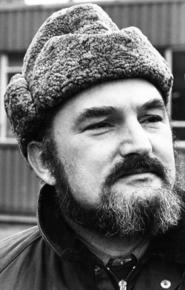Thanks to Duncan for telling me about Julie's article.
To see this story with its related links on the guardian.co.uk site, go to http://www.guardian.co.uk/film/2008/sep/26/documentary
They are what you eat
Julie Christie
Friday September 26 2008
The Guardian
I am often asked if I have ever been in a film that I believe changed people's lives. Away From Her did, maybe - but the one I am sure about is The Animals Film, which I narrated for its director, Victor Schonfeld, more than 25 years ago, and which revealed on film for the first time all the different ways in which we abuse animals.
It's hard to quantify the impact the film had at the time. The late Alan Brien, in his review in the Sunday Times, wrote: "I do not know when I have come out of a screening so moved by the power of the cinema as a medium to transform the entire sensibility of an audience." It was applauded when it was shown at the London film festival, and Channel 4 outbid the BBC to have it shown in its first week of broadcasting. Since then, it has been shown around the world, sometimes leading to changes in law. Many people who watched it became vegetarian. Many more, myself included, completely changed their consuming habits, according to whether their purchases involved animal testing or not.
Because the message of the film was so powerful, there is a tendency to forget the film-making skill it involved. Victor realised that you could not present unmitigated horror for two hours, so he interspersed the remarkable exposés of factory farming and animal experimentation with cartoons and vox pops, while Robert Wyatt and David Byrne lent their wonderful music to it. Twenty-five years later, it stands up as a major documentary, in the tradition of films such as Harlan County USA, the 1977 documentary directed by Barbara Kopple about the plight of American miners. Victor's film really was a breakthrough for this kind of documentary-making. Like the best documentaries - like the best films of any kind - it was illuminating.
But what long-term effect did the film have? Since it was made, some things have changed in Britain, through campaign pressure, public opinion, education and legislation. Many of these changes stem, I am sure, from the film's exposure of the extent to which animal cruelty is involved in all aspects of our lives. For instance, in the early 1980s when the film was made, you would have been lucky to lay your hands on free-range eggs or meat; and never, ever would you have imagined that, owing to public demand, supermarkets would stock humanely reared dairy products. The cruelty-free movement has grown to such an extent, and its lobbying become so effective, that the testing of cosmetic products on animals is now banned in the UK - a big step forward.
However, horrific animal cruelty is still part of the foundation on which we build our comfortable lives in the west, and will be so as long as we continue to demand massive quantities of cheap meat. Only through factory farming can this craving be satisfied, and the issue has tended to slip from view since the film was made. Thank goodness for the emergence of a new kind of animal-rights campaigning - personality- and television-driven, to suit our times - exemplified by the efforts of people such as Jamie Oliver and Hugh Fearnley-Whittingstall. People are again being reminded that the chicken we eat is not actually born on a polystyrene tray wrapped in clingfilm. As with everything, education is the key - we learned about Corn Belts and Rice Bowls at school, but never how the animals we eat reach our plates. It suits the agricultural industries to keep us ignorant, and as long as corporations pursue profit at any cost and human beings refuse to recognise the sensibilities of all species, we have a very, very long way to go. Victor's film reminds us of the journey made so far - and encourages us to continue on it.
· The Animals Film is released on DVD on September 29
Subscribe to:
Post Comments (Atom)

No comments:
Post a Comment